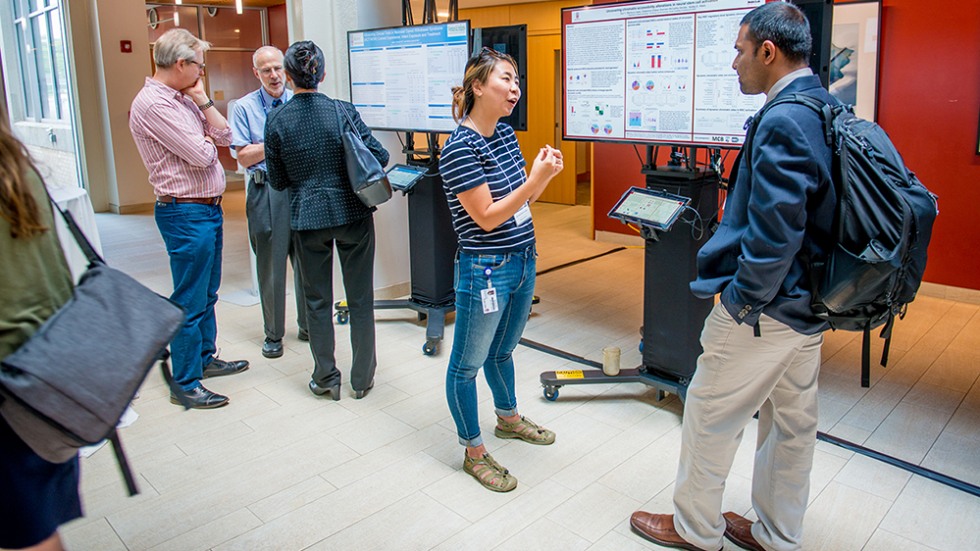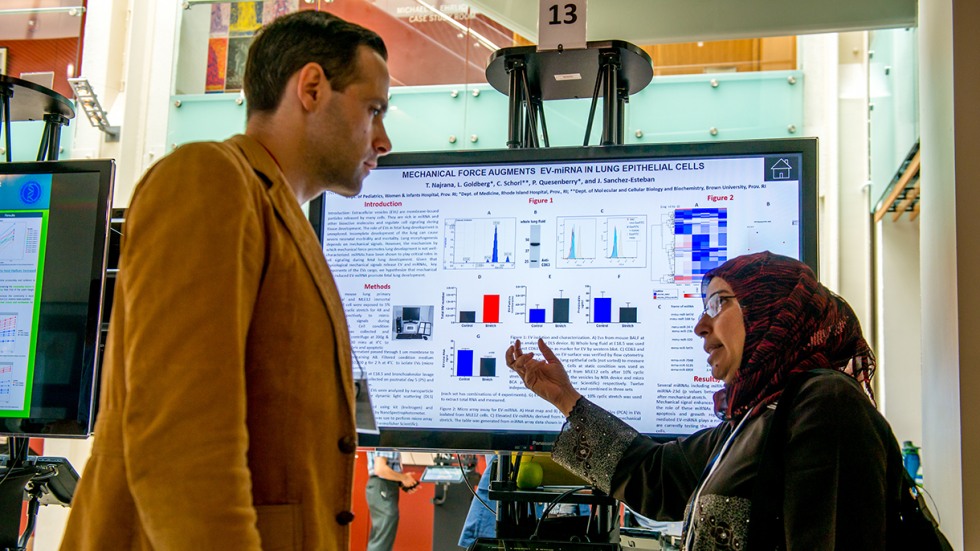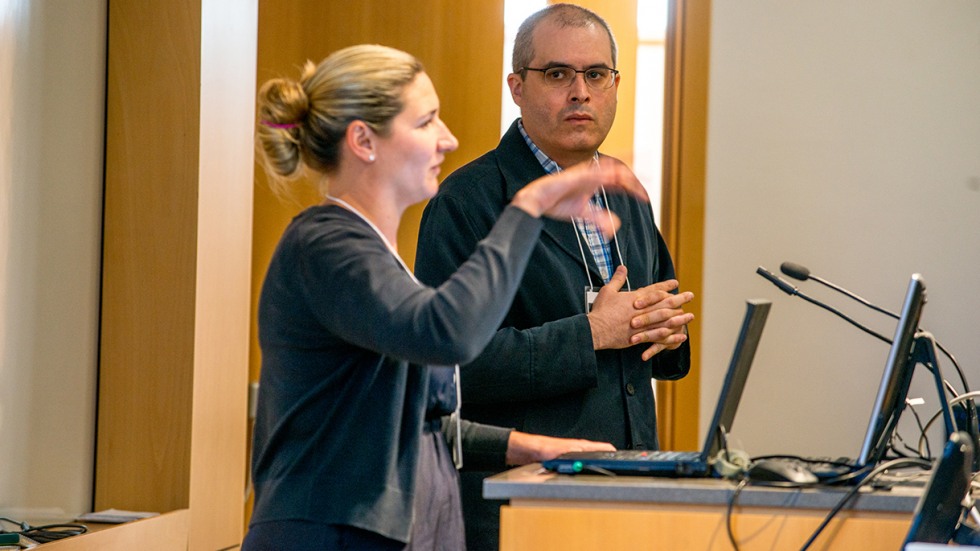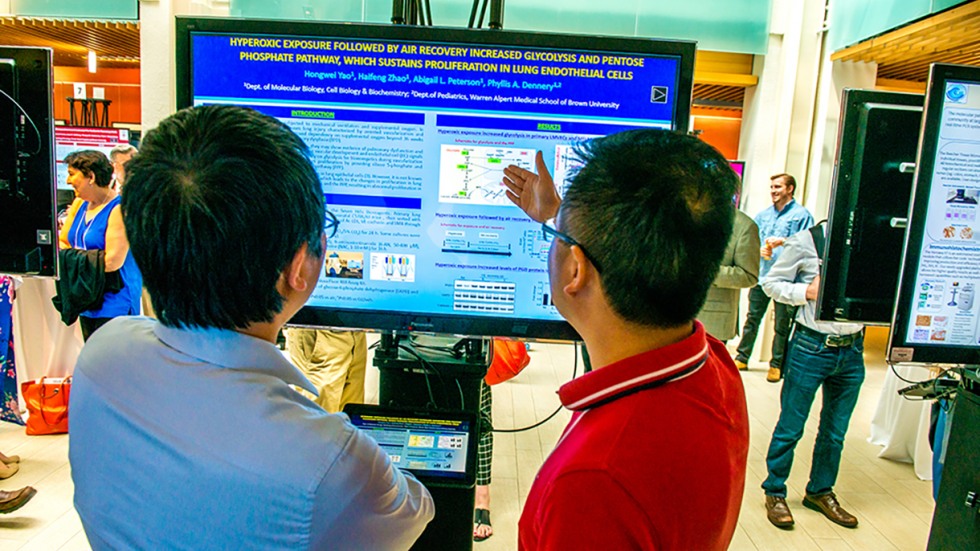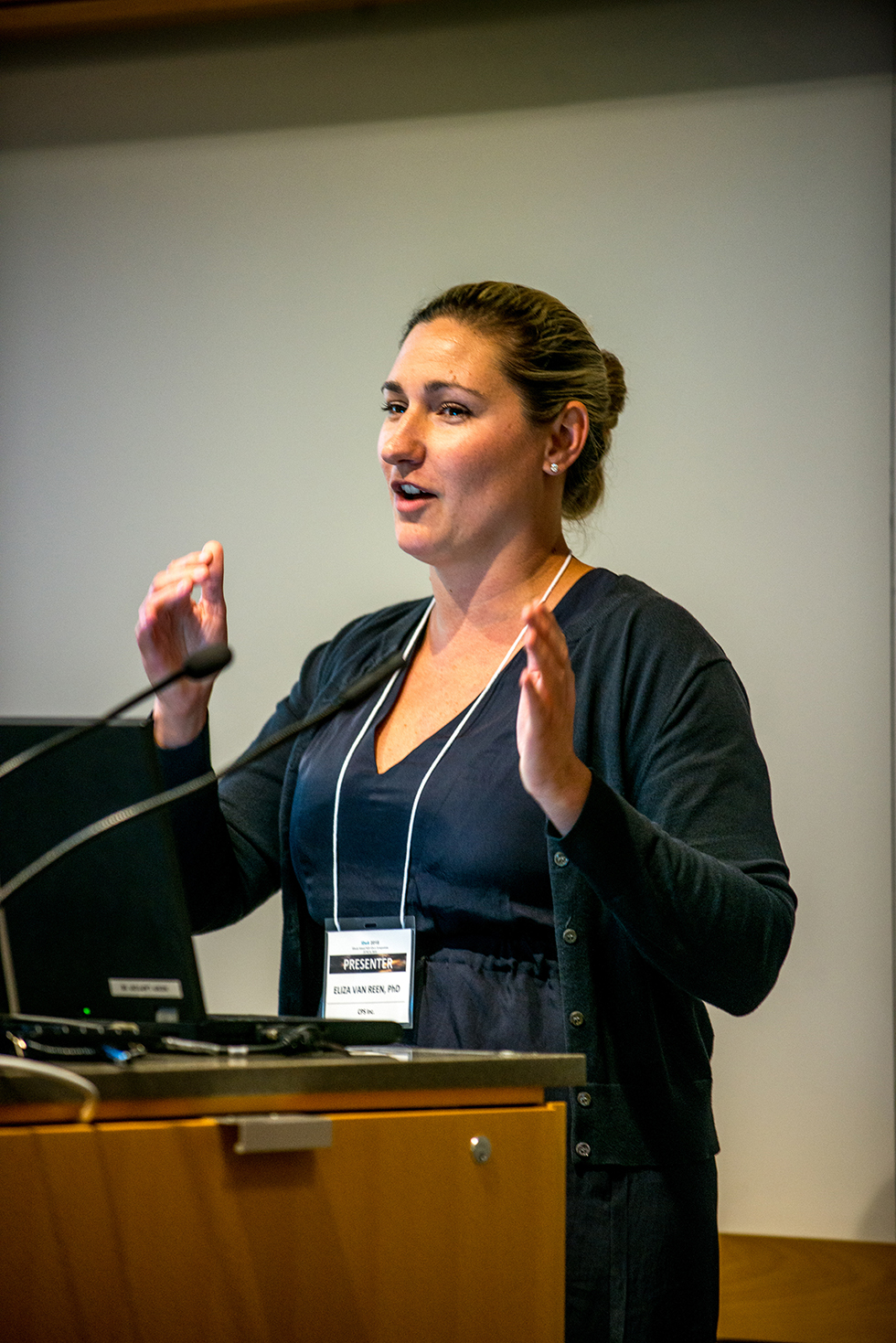PROVIDENCE, R.I. [Brown University] — Since 2016, the Brown University-based, federally funded Advance Clinical and Translational Research program has supported biomedical and public health scholars across Rhode Island who are working to turn scientific discoveries into solutions that can improve the lives of patients.
This month, the National Institute of General Medical Sciences awarded Brown, the host institution on the federal award, a $19.9 million grant to fund Advance-CTR’s expansion into a second five-year phase.
The program funds clinical and translational research — at its core, research that starts in laboratories and progresses into clinical and community settings and makes a positive impact on people’s health through diagnosis, treatment or policy change — and provides education and professional resources to early-career investigators across Rhode Island.
The successful partnership across the major research institutions in the state has resulted in a surge in translational research, according to University leaders.
“Advance-CTR has been instrumental in helping us realize our vision for expanding translational research, both at Brown and with key partners in the affiliated hospitals and URI,” said Dr. Jack A. Elias, senior vice president for health affairs and dean of medicine and biological sciences at Brown. “It’s been a factor in seeding grants that have led us to a 186% increase in external research funding over the past few years. You can’t make leaps like that unless you have the infrastructure, training and mentoring that Advance-CTR provides.”
Over its first five years, Advance-CTR has become a model for scientific collaboration that crosses academic disciplines, builds on the strengths of multiple partners and ultimately makes a difference for patients, said Dr. Sharon Rounds, the program’s director and associate dean for clinical affairs at Brown.
“Advance-CTR has created a centralized hub of education, communication and information for all health-focused researchers in the state,” Rounds said. “In terms of leading research and getting projects off the ground to help local communities, the program is an impressive example of how much can be achieved, and how ideas can come to life and visions can be realized when different groups work together.”
After its 2016 launch, Advance-CTR leaders surveyed Rhode Island health and medicine researchers and learned that pilot funding for new research projects and training and assistance in key skill sets were the most in-demand resources. In response, the program was structured to include a pilot projects award program, a professional development core, and direct assistance to researchers through three service cores in which Advance-CTR faculty and staff provide research consultations in biomedical informatics and cyberinfrastructure work, clinical research design, epidemiology, biostatistics and more.
“We are so happy to have been able to fill these crucial gaps,” Rounds said, “and we plan to build on and expand these offerings in phase two.”
Seeding high-impact research projects
Over its first five years, Advance-CTR established an educational and technical infrastructure to spur researchers from partner institutions to design, conduct and analyze more studies that build on basic research and translate that science into therapies. One of the primary ways the program has sparked collaboration is by offering pilot project grants to investigator teams from different disciplines, departments or institutions. Funding and resources can serve as positive incentives for a scientist to team up with researchers outside of their core area of focus, Rounds said, creating space for unlikely collaboration — and innovation — to happen.
In funding new projects with the potential to benefit patients, Advance-CTR has awarded 85 investigators from Brown, URI, Care New England, Lifespan and the Providence V.A. with funding for clinical and translational research that addresses community health priorities in Rhode Island ranging from treatments for substance use disorder and Alzheimer's disease to mental health interventions for adolescents and veterans. In many cases, the funds have helped to seed and grow research projects to the point of being competitive at the national level. Those 85 investigators went on to successfully win 58 additional awards — including 32 grant awards from the National Institutes of Health — as a result of the funding and support they received from the program. And all 10 of the early career investigators who participated in Advance-CTR's Mentored Research Awards program went on to obtain additional external funding and launch their independent research careers.
“The awards have been spectacularly successful in helping young researchers develop their projects and ideas so that they can then go on to become established investigators in critical research areas,” Rounds said.
One of those researchers, Dr. Amin Zand Vakili, was recently awarded a Clinical Science Research and Development career award from the U.S. Department of Veterans Affairs for his research on post-traumatic stress disorder — new funding enabled by earlier receipt of a 2018 Mentored Research Award from Advance-CTR, which enabled the assistant professor of psychiatry and human behavior at Brown and at the Providence V.A. to pursue his research program.
